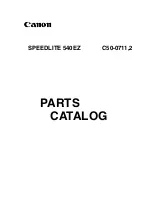
SVS-VISTEK
Feature description
25
NOTICE
It is recommended to use an IR cut filter for color
applications
W hi te Ba l a n ce
The human eye adapts to the definition of white depending on the lighting
conditions. The human brain will define a surface as white, e.g. a sheet of
paper, even when it is illuminated with a bluish light.
White balance of a camera does the same. It defines white or removes
influences of a color based on a non-white illumination.
6.1.9
Resolution
As mentioned in the specifications, there is a difference between the
numerical sensor resolution and the camera resolution. Some pixels
towards the borders of the sensor will be used only internally to calibrate
sensor values (“dark pixels”). The amount of dark current in these areas is
used to adjust the
offset
.
For calculating image sizes, the maximum camera resolution is
determining maximum image resolution. See
specifications
of your
model.
6.1.10
Offset
For physical reasons the output of a sensor will never be zero, even the
camera is placed in total darkness or simply closed. Always there will be
noise or randomly appearing electrons that will be detected as a signal
(dark noise: noise generated without light exposure).
To avoid this dark noise to be interpreted as a valuable signal, an offset
will be set.
Figure 13: Illustration of dark noise cut off by the offset
Most noise is proportional to temperature. To spare you regulating the
offset every time the temperature changes. A precedent offset is set by the
camera itself. It references certain pixels that never were exposed to light
as black (refer to “
resolution – active and effective
”). So the offset will be
set dynamically and conditioned to external influences.
Summary of Contents for ECO Series
Page 5: ...SVS VISTEK Safety Messages Contents of Camera Set 5 ...
Page 94: ...SVS VISTEK Dimensions 94 ...
Page 96: ...SVS VISTEK Dimensions 96 ...
Page 97: ...SVS VISTEK Dimensions 97 ...
Page 98: ...SVS VISTEK Dimensions 98 ...
















































